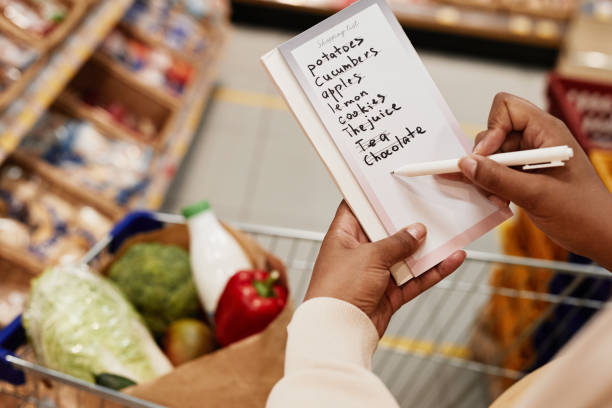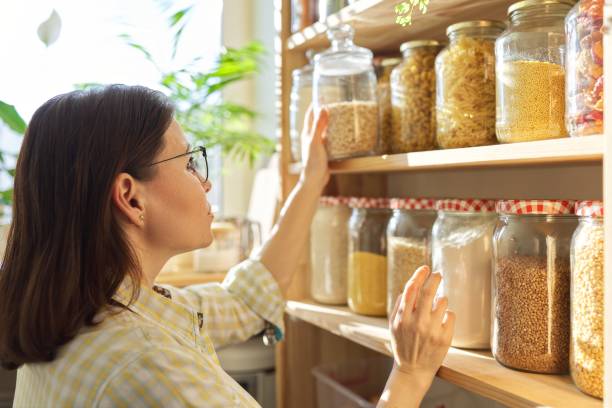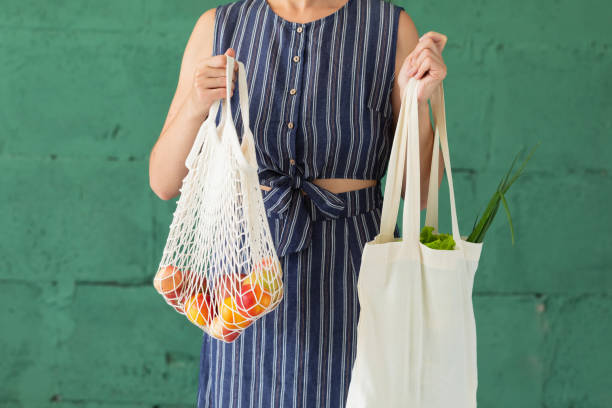Buying food nowadays often leads to a lot of waste, which is a sad reality. We indeed produce food waste when we don’t consume all the foods we buy before they spoil, but it’s also true that food packaging contributes to food waste. We would all prefer to be zero-waste, but that can be challenging, depending on your grocery store access, your time spent shopping for groceries, and any dietary restrictions you may have.
Although we may not be able to achieve completely zero-waste status in the kitchen, we should strive for a low-waste lifestyle by reducing our food packaging consumption. We can reduce the quantity of waste that ends up in landfills by making a few small changes.
Preparation for Zero-Waste Grocery Shopping

Prepare thoroughly before going shopping to minimize waste. Prepare an inventory of all the ingredients in your kitchen and pantry. Prioritize essentials to avoid impulse purchases and note items that need restocking. It can help streamline the shopping process and reduce food waste by developing a comprehensive shopping list based on actual needs rather than wants.
Pre-shopping routines should also include meal planning. In addition to ensuring that ingredients are utilized efficiently, planning meals for the week reduces the chance of purchasing unnecessary items that might go unused. You can explore new recipes and save money on groceries by planning meals.
10 Great Tips for Zero Waste Grocery Shopping

1. Buy reusable shopping bags
Reducing shopping waste starts with this step. With reusable bags, you reduce the amount of plastic that ends up in landfills or on beaches. If you choose a reusable bag, you could save energy and resources by using it five times instead of using disposables.
Make sure you select a bag based on its size and material – would a mesh bag be suitable for your shopping? Or will the things you buy fall off from the holes? Handmade hemp bags are tough and durable, while cotton bags are washable and biodegradable. Reusable bags can also be made from non-degradable plastic, which eventually ends up in the landfill.
2. Buy in bulk and fill up!
Bulk shopping is a great way to prevent excessive packaging from going to landfills and to avoid excessive purchases. If you are looking for zero-waste grocery stores or bulk/refill shops near you, use Google to find them. Store bulk dry goods such as nuts, grains, seeds, and cereals in containers. It is also often cheaper to buy dry foods in bulk.
By writing expiration dates onto containers directly with an erasable marker, you can keep track of them. Make sure to check the expiration dates on your products – if you have extra, why not give some to family and friends before they expire?
3. Support local shops
Buying directly from local farmers is the best way to support them. Many cities have farmer markets all year long, so search for one near you! Sustainable shopping is a wonderful way to support the environment. Besides benefiting the local economy, it also reduces deforestation and over-farming.
There is a wide selection of high-quality items here that exceed those found in large chain stores. Buying fresh items has a longer lifespan and won’t perish as quickly. Don’t forget to bring reusable shopping bags along to reduce even more waste!
4. Use reusable/recyclable containers
When you go to the store, bring reusable containers such as glass jars. You can use these wherever you need to weigh an item. Before filling the jar with olives, cheese, fish, deli products, or sandwich meat, the employee can tare it on the scale. You can store wet foods in screw-top jars. Reusable and recyclable packaging is important because it guarantees a circular economy.
5. Stay away from products that use too much packaging
Don’t hesitate to refuse items because of their packaging. The whole packaging combo is not a good idea, especially when you’re craving anything wrapped in plastic or encased in Styrofoam, but it is a good way to eliminate unnecessary trash once that craving has been satisfied.
Read more on how to reduce waste through eco-friendly packaging materials here!
6. Make your meals
Most of us can’t afford the time and effort to cook from scratch every day. By cooking from scratch whenever possible, we can reduce the amount of packaging ready-made foods require. Preparing your pasta dishes for the week rather than buying several single-serve, plastic-wrapped meals is likely to produce less waste than choosing locally grown tomatoes over imported tomato paste, for instance.
7. Waste composting
Food waste can be diverted from landfills and turned into nutrient-rich soil by composting. Consider joining a composting program in your community or starting your system in the backyard.
Explore our Beginner’s Guide to Composting and learn how to turn waste into nutrient-rich soil for a sustainable garden.
8. Shop in season
Make your meals seasonal by choosing fruits and vegetables that are in season. During the summer months, you should buy peaches and fresh asparagus. An availability guide can show you the produce season in your area. Produce purchased in season is of higher quality and won’t spoil as quickly. There’s a bonus – buying in season means you’ll pay less and have a larger selection!
9. Keep an eye on expiration dates
When buying perishables, such as dairy products, always check the expiration date. Short-dated products sometimes don’t get removed from the shelves and end up going to waste before being eaten. If you plan to cook a large batch of meals or consume them quickly, grab the shorter-dated items – this will reduce the store’s perishable waste.
10. Beauty/body care products
Even though beauty products aren’t technically groceries, finding zero-waste ones that focus on sustainable practices can be challenging! You can find compostable or plastic-free soaps at most health food and beauty stores.
Look for bulk stores with refill programs when shopping for eco-friendly beauty products like shampoo and conditioner. You can reuse glass containers for bulk shopping if you purchase items in glass containers.
Advantages of Zero-Waste Grocery Shopping
The advantages of living a zero-waste lifestyle extend beyond individual habits to help the environment and enhance your lifestyle. Consider these key benefits:
- Environmental benefits: A zero-waste shopping approach greatly reduces the environmental impact of packaging waste. The use of reusables with minimal packaging reduces plastic pollution and ensures a circular economy.
- Conservation of resources: Producing packaging materials requires considerable resources. As a result of zero-waste grocery shopping, we will consume fewer resources, making the world’s environment more sustainable and reducing carbon emissions.
- Financial benefits: When you adopt a zero-waste approach, you tend to shop more mindfully and intentionally. In addition to reducing food waste, you’ll also buy only what you need.
Conclusion
When juggling careers, families, friends, and other responsibilities, it can be difficult to break free of the constant loop of consumption that our economic system keeps us locked into. The first step towards reducing consumption is to be more mindful of what we buy and to identify easy ways to reduce that consumption.
Hopefully, between these tips and your sustainable consumption grocery plan, you’ll be able to go shopping without wasting any food! In no time, you’ll be eating healthier, fresher meals. In addition, you’ll be contributing to a more sustainable future for this planet.







